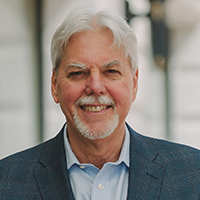
What is Good, and Bad, About the CFPB
The banking industry is witnessing the dawn of a new era. Since it became operational in July 2011, the Consumer Financial Protection Bureau (CFPB) has taken over the responsibility for consumer compliance from the Federal Reserve, the Office of the Comptroller of the Currency and the Federal Deposit Insurance Corp., and also imposed a new regulatory regime on nonbank companies like mortgage brokers and servicers, payday lenders, real estate appraisers and debt collection firms that heretofore had romped across the marketplace free of adult supervision.
The “bureau” is the subject of this issue’s cover story, and as I worked on it I kept asking myself whether the country really needs another regulatory agency. I have made my own calculation and decided the answer is yes. And no. As often happens in life, we are sometimes handed things that are both good and bad. Such is the case with the CFPB.
Here is what I think is good about the CFPB: It will help create a more level playing field between banks and nonbanks in those markets where they compete directly, primarily in the mortgage sector but also in student lending. In a recent speech at the national convention of the Independent Community Bankers of America, CFPB Director Richard Cordray made the bold claim that if the bureau had been around in the 1990s, there never would have been a mortgage meltdown-which was the catalyst for the worst financial crisis since the Great Depression.
“I firmly believe that had the consumer bureau been in place 10 years ago, the crisis would have been headed off before it metastasized,” Cordray said.
It’s impossible to say now whether the bureau would have cracked down on the kinds of excesses that led to the collapse of the home lending market, including loan-to-value ratios of 100 percent and loans that did not require any income verification, or whether it would have kept a lid on the subprime market which skyrocketed as lenders-many from outside the banking industry, but banks and thrifts as well-went down market in search of yield. Not blessed with 20-20 hindsight, as Cordray is today, the bureau would have had to see what the other banking agencies missed and stopped the abuses that eventually led to the market’s undoing, and not allowed itself to be disarmed by the conventional wisdom, which was strong at the time, that U.S. housing prices always go up.
But we know this much for sure: The nonbank sector led that parade and there wasn’t a regulatory authority out there with the power to stop it. Next time there will be.
I think it’s also beneficial for marginal industries like payday lenders and debt collection companies to have a regulator because many of them prey on the most vulnerable among us-the working poor, and people who are deeply in debt, oftentimes for reasons beyond their control. And there seems to be almost universal agreement that loan disclosures are too complicated for most people to understand-which defeats their purpose-so the bureau could have a positive impact in this area as well.
Here’s what worries me about the CFPB: As the bureau assumes its role as a strong consumer advocate, it’s impossible to predict how that will impact the consumer banking business from the perspective of the bank. It’s hard to argue that prior to the passage of the Dodd-Frank Act-which created the CFPB and defined its mission-the banking agencies did not take compliance with consumer protection laws as seriously as they did safety and soundness supervision. After all, nonbanks weren’t the only mortgage originators who threw gasoline on the subprime bonfire in the mid-2000s-plenty of banks did as well-and this is why Dodd-Frank stripped regulators of their consumer compliance authority for institutions with more than $10 billion in assets.
My concern is that banks will end up being subjected to a level of scrutiny-and interference-by an activist CFPB that is disproportionate to their shortcomings on consumer issues. It’s not that every bank is perfect, but this industry’s record for consumer fairness is better than most. Will more intense scrutiny on product design, marketing and distribution drive up the industry’s costs without yielding a concomitant gain to consumers? Will tougher regulation on consumer compliance have a chilling effect on innovation?
We don’t know the answers to those questions yet because there’s still too much we don’t know about the CFPB, which after all, is less than a year old. When I was reporting the cover story, several people said it will take at least five years before we know what kind of regulator the CFPB will turn out to be. But it’s entirely plausible that on balance, having a strong financial consumer advocate in Washington will turn out to be good for most consumers, but not so good for banks.

Join OUr Community
Bank Director’s annual Bank Services Membership Program combines Bank Director’s extensive online library of director training materials, conferences, our quarterly publication, and access to FinXTech Connect.
Become a Member
Our commitment to those leaders who believe a strong board makes a strong bank never wavers.



